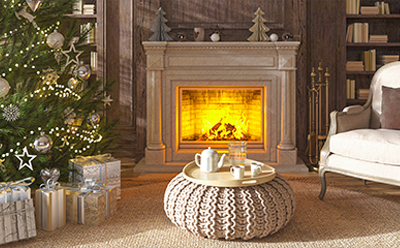What to Consider Before Upsizing Your Home
Traditionally, many older adults have opted to downsize their living spaces. Now, some mature individuals and couples are entering the real estate market to upsize, seeking homes with more space and amenities for them to enjoy during their golden years.

At the same time, there’s the growing appeal of multigenerational living, especially with today’s seniors living longer than ever.
Yes, multiple factors are increasing the appeal of upsizing, but is that the right move for you? Let’s weigh the pros and cons.
Pros of upsizing your home
In recent years, tight housing markets have made it harder to find smaller, single family homes traditionally sought by people planning to downsize. In response, some retirees seeking low-maintenance housing are opting for larger, newer properties.
By investing in a spacious property with modern accessibility features — wider hallways, larger bathrooms and bedrooms, step-free entrances, handrails and grab bars or walk-in showers or bathtubs — homeowners may reduce the need for expensive repairs and renovations. They can move into a more comfortable living space that is better suited for them to age in place.
In making the switch from an older to a newer property better aligned with ADA Standards for Accessible Design,1 buyers may also enjoy wider hallways and more accessible shower stalls. These features can make it easier for people with either permanent or temporary disabilities to stay at home with family or other caretakers.
Meanwhile, a Pew Research Center survey2 found that multigenerational living has increased over the past five decades — and the trend shows no signs of slowing down. As families grow and multigenerational living becomes more common, larger properties can provide the necessary space for adult children, grandchildren or elderly parents to live together.
For family members who get along well, this living arrangement may foster closer relationships while also offering the benefits of shared household expenses, additional help with children, and better caregiving for aging adults.
Upsizing to embrace multigenerational living also allows for shared mortgages or adding an accessory dwelling unit (ADU) that could be a mother-in-law suite or a backyard casita. It could also provide a pathway to hiring a live-in caregiver or taking in future rental income.
Cons of upsizing your home
The biggest drawback of upsizing is the associated increase in costs. Larger homes typically come with higher purchase prices, property taxes, utility bills and maintenance expenses. They may also come with costlier HOA fees.
Higher home prices combined with higher interest rates also increase mortgage payments. For retirees living on fixed incomes, increased expenses could strain their budgets and limit their ability to pursue other interests, such as travel.
A larger property can also require more upkeep. Cleaning, maintenance and repairs can become time-consuming and physically demanding, potentially detracting from retirement leisure and relaxation.
Downsizing and selling a family home often brings a sense of nostalgia and the emotional challenge of letting go of a property that holds decades of memories. Going bigger might also require you to invest in additional furniture or acquire more items to equip a new space, such as a game or craft room.
And then there’s the fact that, although multigenerational living can sound appealing, not everyone has family members with whom they want to live. Forcing an arrangement based on financial advantage could have potentially negative consequences, from frustrations over who is financially responsible for what to how much caregiving one wants to provide others.
The takeaway
Making the decision to upsize a home comes with both opportunities and costs. By weighing the pros and cons carefully, you can make a decision that aligns with your wants and needs.
An experienced real estate agent can assist by being not only a sounding board for your concerns but also a resource to help you better understand your options.
Are you planning to upsize — or downsize — your home this year? Remember that RBFCU’s preferred real estate partner, Kuper Sotheby’s International Realty, is here to help you move beyond your expectations toward an extraordinary real estate experience.



.jpg?sfvrsn=23ceb5a8_1)
.jpg?sfvrsn=5e8db4a8_1)
